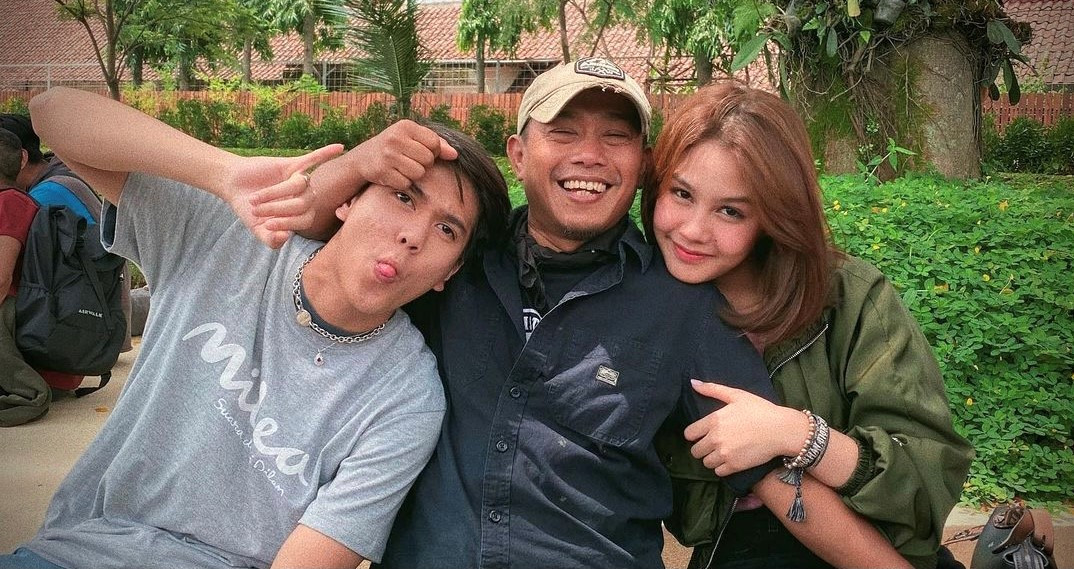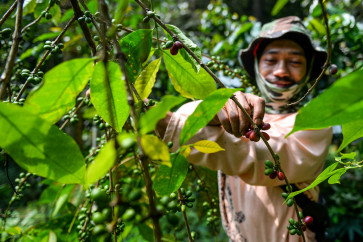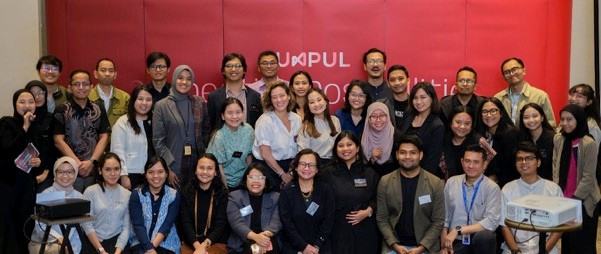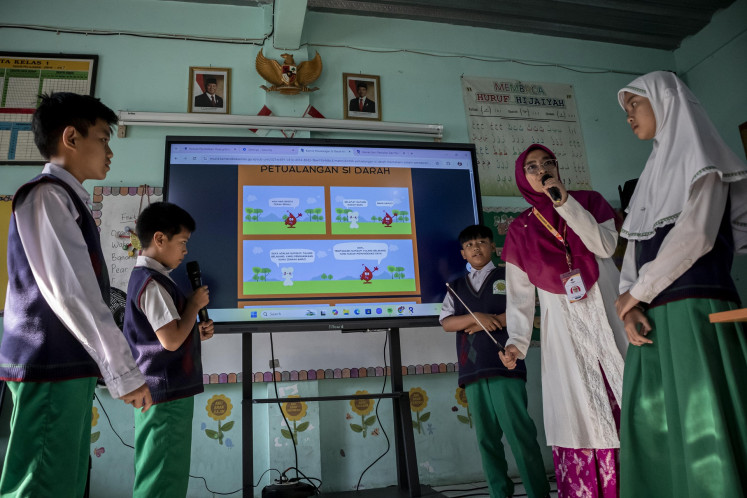Pidi Baiq hopes for the presence of TV Budaya Indonesiana
“It seems that most of us no longer care about cultural values. This is even more so with intellectual culture, compared to, say, other values like money and recognition.
Change text size
Gift Premium Articles
to Anyone
 (Credit Photo: Vanessa Pricilla)
(Credit Photo: Vanessa Pricilla)
“It seems that most of us no longer care about cultural values. This is even more so with intellectual culture, compared to, say, other values like money and recognition. These may not be considered shortcomings or whatever, but I think it’s okay. They look just fine, though.”
Pidi Baiq, a creative man with diverse professions, opened a conversation by addressing an issue. Pidi loves provoking thought in unique ways, but he doesn’t consider it necessary to be bombastic. He raises an issue in a relaxed way, interspersed with laughter. “I am fond of reading, engaged in discussions on any topics from which I can learn. But at times I just want to laugh and don’t want to think,” he continued while laughing.
Bandung is still imposing a public activity restriction policy because of the COVID-19 pandemic. But Pidi’s residence in the northern part of Bandung looked different. The activity restriction didn’t seem to be clearly noticeable at his residence because his house has a very spacious yard, intermingling with the mountainous environment. The sounds coming from trees as the wind passed through the leaves could be heard, interspersed by those of the gurgling water of a pond with fish busy having their lunch.
Pidi spends most of his time at home during the pandemic, and yet, he keeps actively working and collaborating and he can do so, of course, thanks to technological advancement. How does Pidi view internet technology and its relation to the creative process?
“I’ve been using internet for a long time. I deliberately ‘misuse’ the internet with the hope that I can keep my connection with my friends. I want them to at least read things that I am thinking about, just as I want to know their thoughts through what they write. As far as my feelings, I feel like I’m getting lots of inspiration, spirit and motivation from them through those kinds of activities,” he said.
Pidi acknowledged that initially he used the internet just to say hello to his old friends. But then he found interesting things in the media, which paved the way to the production of numerous works.
Pidi began his career as cartoonist, before becoming a comic maker and a painter.
He didn’t stop there. He began to express his feelings through songs. The reason is simple: because he loves folk songs. Apart from that, folk songs are easy to sing and have messages and values behind the lyrics.
Since then he became a musician with his group band, The Panasdalam. Recently, he has also spread his career to the film world, in addition to being a script writer and a director. How does Pidi explain the relationship between creativity and the diversity of his professions?
“Writing, drawing and making comics are mediums of self-expression. I think about my creativity and how I want to engage in more creative projects by using any mediums. Doing more things makes me increasingly aware that it is not a matter of good or bad work but that I just want to release my thoughts and emotions through different means and mediums.
Pidi has an interesting view of his work in relation to culture. According to Pidi, every generation has a similar opportunity when it comes to expressing their work, including the culture in which we exist.
“We are people born of a culture and hope to give birth to a new culture in accordance with its situation and condition. We cannot just chew on old ideas. Students should develop and come up with new ideas. My works are not the best, but when I work, I do it seriously. For me, working is a totality, unless it’s better, it’s better not [to do it],” said Pidi, who encourages the youth to dare to take advantage of today’s era and not to be trapped in old styles of work. “Poems by poet Chairil Anwar are good, but he lived in the old days and today is mine,” he continued.
What work by Pidi will be released soon?
“I’ve just finished writing my latest novel, titled Ancika, Dia Yang Bersamaku Tahun 1995 (Ancika, who was with me in 1995). The novel has something to do with Dilan. Ancika is Dilan’s boyfriend several years after Dilan broke up with Milea. The novel is already available in almost all bookshops that are still open. But we live in the era of comfort. People can also buy it online.”
Media and digital platforms seem to be part of how Pidi expresses himself. Netflix, Iflix and MolaTV are trendy digital media over the top (OTT) platforms. How does Pidi view this, especially as it relates to the planned digital presentation by the Directorate General of the Research, Technology and Education and Culture Ministry providing special content about culture?
“If there is such program, I think it is good, although education and culture programs often cannot be delivered well because, at times, it doesn’t meet expectations regardless of taking the theme of culture or whatever name is. Perhaps it is now time to improve ourselves by not making every education program normative in nature, or special for the creative world. We should not control [the programs to make them] into scientific practices,” he said.
“The programs should not just give students theories and knowledge excessively. We hope that they can set themselves up and build a personality with a good mentality to become creative,” Pidi added.
The day was getting hot, the fish in the pond had hidden in the depths to make them feel more comfortable. The sounds of passing winds were no longer heard, a sign that Ashar time was getting closer. Pidi ended the conversation with a brief piece of advice for the youth, civil servants, employees and cultural players.
“Now the fast pace of virtual world is inevitable. This is incredible! We hope that we can utilize it well and keep okay and not to get caught by instant things in the virtual world,” said Pidi, while saying goodbye.
This article was prepared by Indonesia Editorial Team.









